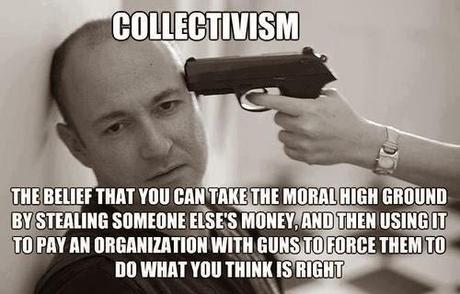 A listener sent me this brilliant piece by John C Wright entitled Unified Field Theory of Madness.
A listener sent me this brilliant piece by John C Wright entitled Unified Field Theory of Madness.In it, Wright explains how, in a more complete way than anyone else I've read, Collectivists believe what they believe, and more importantly, how they hang onto those beliefs in spite of the constant barrage of evidence of the utter bankruptcy of their world view.
In this podcast, we review clear and logical Wright's essay. The key points in a nutshell:
- Man cannot know Truth. Reasoning in the realm of ethics, politics, morality, economics, and history, is a hate crime.
- Believing this requires self-deception, resulting in humiliation and guilt, which are overcome by sanctimonious pride in one’s perfect righteousness.
- Because truth is impossible, there can be no right and wrong. There can be no cause and effect.
- Because there is no cause and effect, everything that happens in life is due to chance. In a game of chance, consistent winners must be cheaters. Success is therefore a crime, winners are criminals, and losers are victims. The property of the successful has been stolen. Justice mandates confiscation of that property and returning it to the victims.
- Consistent with punishing success and rewarding failure, the collectivist must demean whatever is worthy, true, successful, or good, and must praise whatever is unworthy, untrue, unsuccessful and bad. Whatever reason says is good must be bad and vice versa.
- Since reason is bad, dissent from collectivist orthodoxy must not be argued with, it must be ridiculed and condemned as vile, stupid, or evil.
If you want to defeat the enemy, you must know him. Listen to this show and learn why Collectivist are what they are.
Pete Ferron

